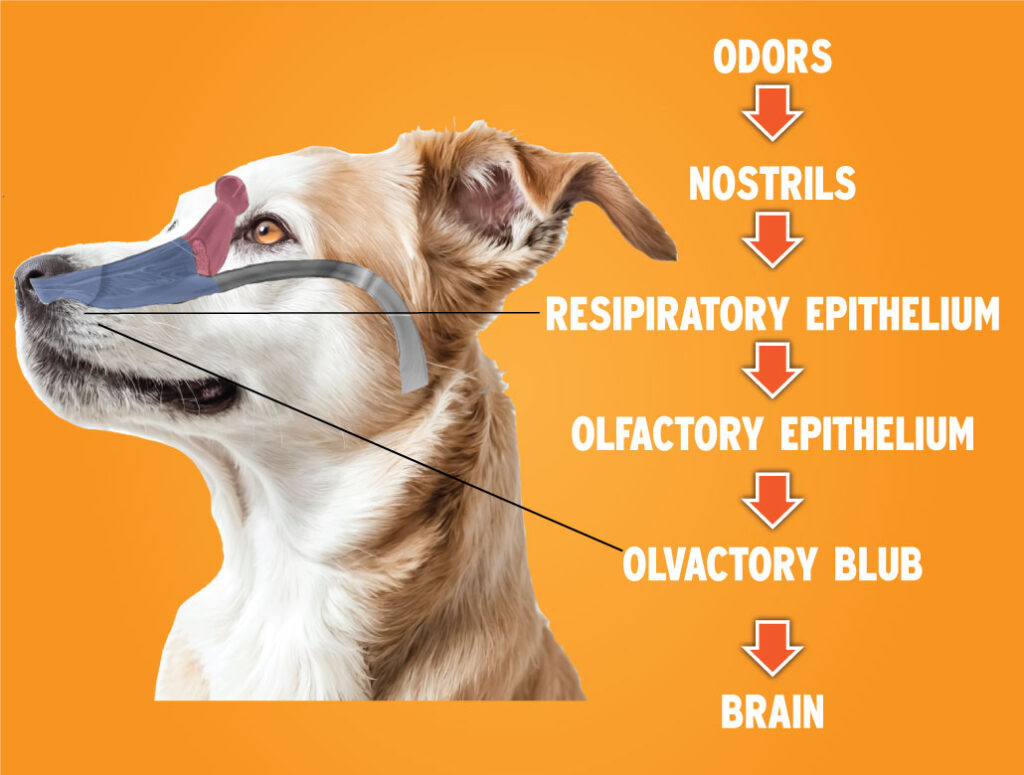Comparing Canine and Human Eating Habits:
A New Perspective
Comparing Canine and Human Eating Habits:
A New Perspective
First and foremost, dogs don’t rely heavily on taste-they have less than one-fifth the number of taste buds humans do. Instead, they use their highly developed sense of smell to determine how food will taste. Dogs have around 300 million olfactory receptors, compared to only 6 million in humans. Not only do dogs have a far greater number of these receptors, but their brains are 40 times more efficient at analyzing odors than ours.

Buy Your Bowl Now
Designed with science in mind.
Buy NowCommon Mistakes
As pet owners, we often think that whatever we eat is fine for our dogs. But is
that really the case? Here are answers to some of the most common questions:
Dogs have unique nutritional needs that are quite different from ours. While we might enjoy a variety of flavors and textures, dogs rely heavily on their sense of smell, and what smells appetizing to them might not be the same for us. Ignoring this can lead to malnutrition, which can have serious consequences for their health.
Dogs are natural-born scavengers, so eating quickly is in their nature. However, this can be a problem if not managed, as it can lead to overeating, indigestion, or even choking. Understanding and addressing this instinct is vital for their well-being.
A big mistake is not considering how different a dog’s sense of smell is from ours. What smells great to us might not be appealing to them, leading to disinterest in food or even malnutrition. This is a critical issue that affects their health.
Ensuring your dog gets a balanced diet goes beyond just providing food, it’s about offering the right kind of food that appeals to their senses. A diet that isn’t tailored to their needs can lead to serious health issues.
If your dog is losing interest in food, showing signs of malnutrition, or has low energy, it could be time for a diet change. These issues are more serious than they might seem and could be life-threatening if not addressed.

Looking For Solutions?
To get answers to these questions and more, sign up now! Gain exclusive
access to expert insights and recommendations, plus a special gift to enhance your dog’s mealtime experience.
